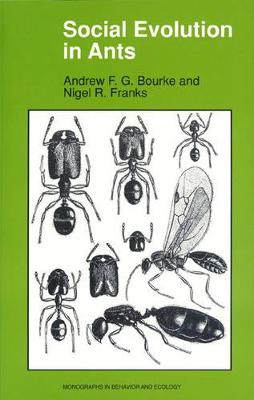Monographs in Behavior and Ecology
1 primary work
Book 62
Biologists have long been intrigued and confounded by the complex issues in the evolution and ecology of the social behaviour of insects. The self-sacrifice of sterile workers in ant colonies has been particularly difficult for evolutionary biologists to explain. This text presents an overview of the current state of scientific knowledge about social evolution in ants and shows how studies on ants have contributed to an understanding of many fundamental topics in behavioural ecology and evolutionary biology. The book explains kin selection theory and sex ratio theory and their applications to social evolution in insects. Aiming to dispel lingering skepticism about the validity of kin selection and, more broadly, of "selfish gene" theory, the authors show how these ideas underpin the evolution of both co-operation and conflict within ant societies. In addition, using simple algebra, they provide detailed explanations of key mathematical models. Finally, they discuss two relatively little-known topics in ant social biology: life history strategy and mating systems.
